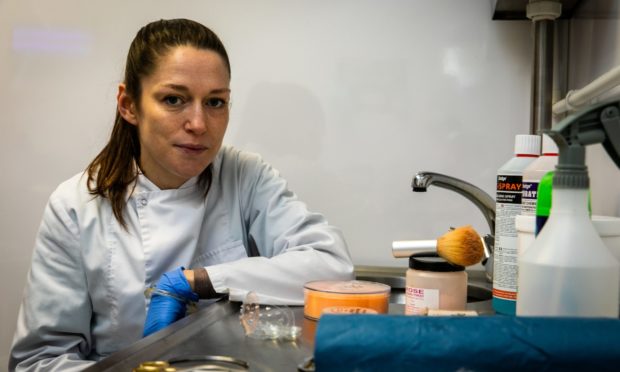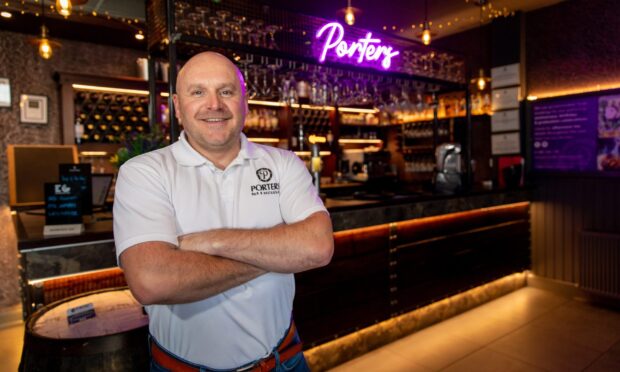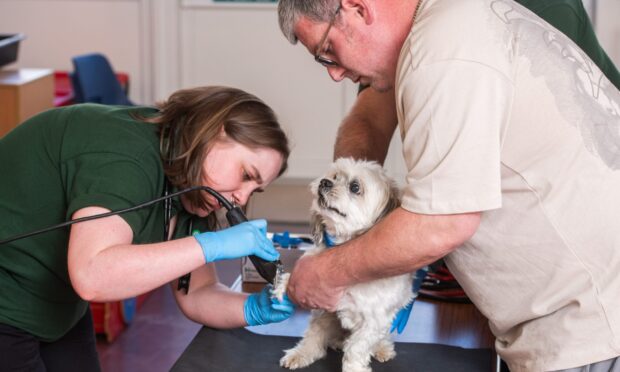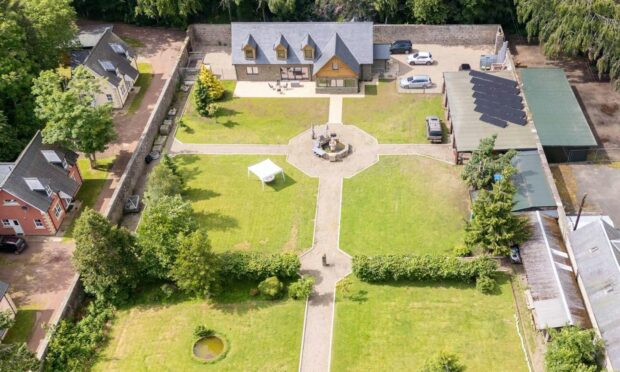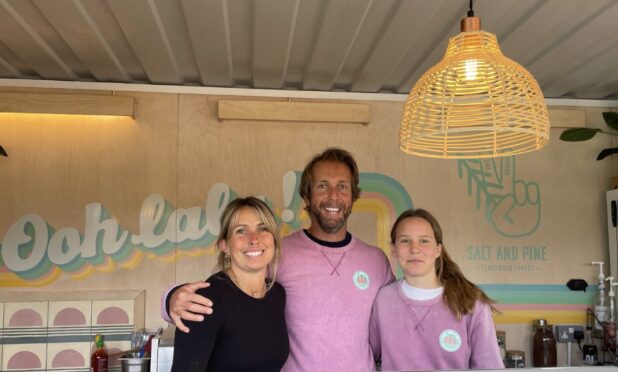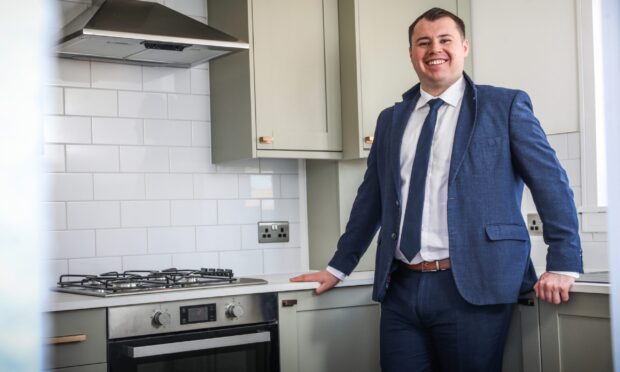While many of us don’t like thinking about death, it’s reassuring to know that when we’re making plans for the end of our lives, there are people to help us prepare for our final journey.
One such person is Carrie Thomas, an embalmer and mortuary technician with Crosbie Matthew Funeral Directors in Kirkcaldy.
Carrie, who grew up in Edinburgh, studied at Duncan of Jordanstone but then, for a variety of reasons, took her artistic expertise and has turned it into a very different sort of ‘art’ – preparing bodies in advance of their funeral.
Carrie describes the path that led her to her current position.
“I always wanted to be an artist until I actually became a professional painter and it was much lonelier than I had expected,” she reveals.
“I decided to make money playing my fiddle – which I’d played since I was eight – so I joined a few bands and went off touring. It was great but not an ideal lifestyle for having kids.
“So I decided to get a ‘normal’ job. I had done work experience and a short placement at a funeral home earlier out of curiosity. I had lost two siblings as a child and had a whole load of questions.
“I had enjoyed it and been good at it, so I went for my diploma in embalming,” she continues.
Carrie, 40, has been at Crosbie Matthew at their Kirkcaldy branch for four years and the ethos behind her work is to do her best for each and every body that she cares for.
“Past experiences drive me to do things better for others,” she says.
“I feel passionate about making families feel comfortable that their loved one is being looked after and prepared properly before their funeral.”
While people can find it difficult to think about the practical side of what a mortuary technician does, Carrie demystifies it. “I look after all the bodies that come through, wash and prepare them, dress them and place them in their coffins.
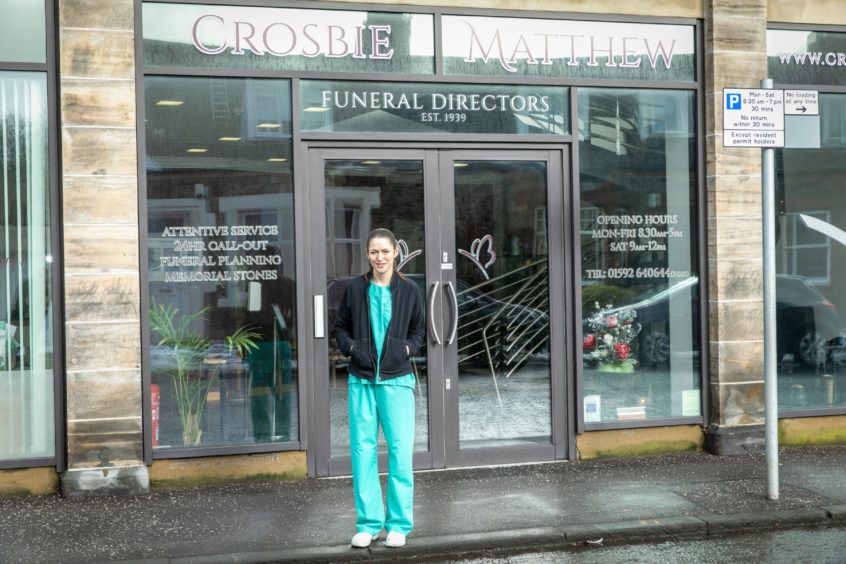
“Of course it affects me emotionally,” she admits. “I’ve only cried once at work though and other than that I have only cried at home, usually to my partner or my mum. The older I get the better I get at knowing what’s going to affect me when I get home, so I can usually warn my partner if I’m going to cry when I get in.
“However, mostly my work feels peaceful.
“My job has answered a lot of questions,” she continues.
“I feel at home with the dead and it makes sense now. I’m not looking for anything any more, I’m just appreciating where I am. I would say more that my work with death has given me a new and better perspective on life.”
There’s been an increase in women coming into the industry in recent years and Carrie observes: “I think this is because it is ultimately a caring profession, and women are designed to nurture.
“I’d say the biggest reason is, however, that women are being treated more and more equally to men so we’re getting closer to having the same opportunities.
“I have great job satisfaction and great colleagues, I enjoy every day.
“Everyone is someone’s child and we all deserve to be respected.”
Carrie’s boss, company director Sheila Matthew, joined Crosbie Matthew over 30 years ago following time spent with a forward-thinking, all-female funeral directors’ firm in Australia. Her experience there has stayed with her and shaped her vision for the company.
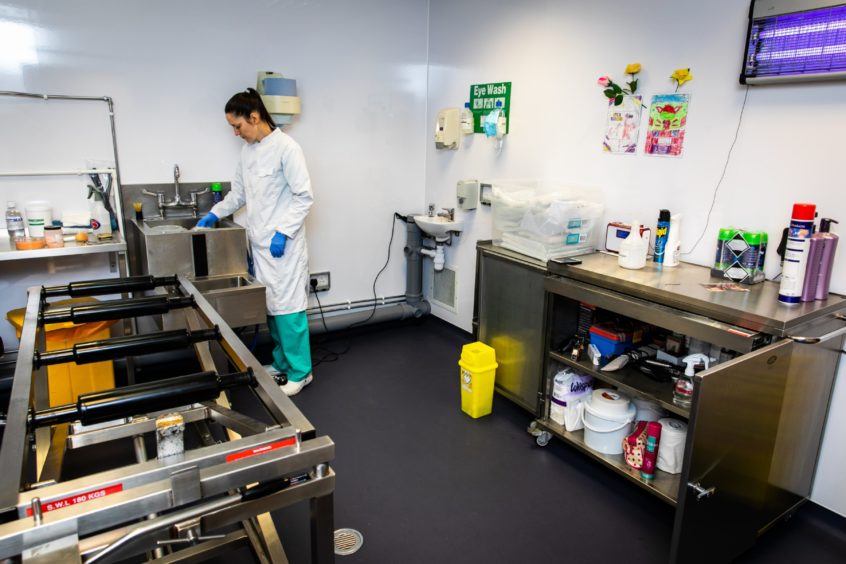
“We support families with funerals to fit their needs rather than fitting them into a rigid funeral structure and, for that to work, we need a diverse range of staff who all bring different skills and expertise to the business,” says Sheila.
“Carrie’s life experience undoubtedly brings another dimension to the service we provide. She takes a real pride in her work and that’s incredibly important to us.
“There is a lot of secrecy in this profession which I believe needs to change and which is likely to do so with the publication of the Scottish Government’s Code of Practice for Funeral Directors later this year,” she continues.
“Although Crosbie Matthew belong to SAIF, Society of Allied and Independent Funeral Directors, a recognised trade association with a strict code of practice, some funeral directors do not and operate on trust alone.
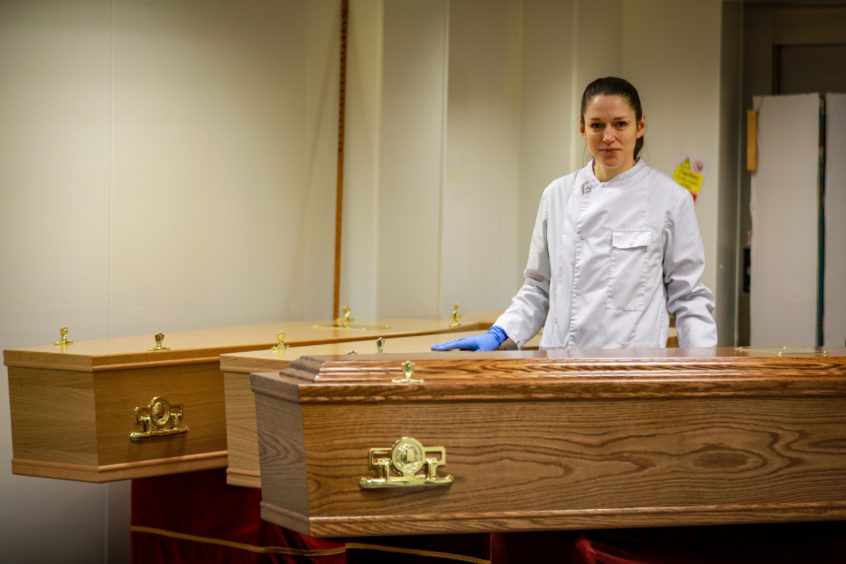
“However, I feel we have a duty to inform our clients about the facts. Sometimes people ask what happens to the deceased after they are uplifted into the care of a funeral director, from what type of vehicle will be used and where they will be located to what, exactly, will happen to them once they get there.
“We can all see the visible aspects of a funeral but what happens in the background and is it OK to ask for clarification over our procedures or for the finer detail? My answer to that is very much so and people should never be afraid to ask questions,” stresses Sheila.
“I believe it’s part of our job to ensure they understand what’s involved – we are after all, taking care of their loved one.”
